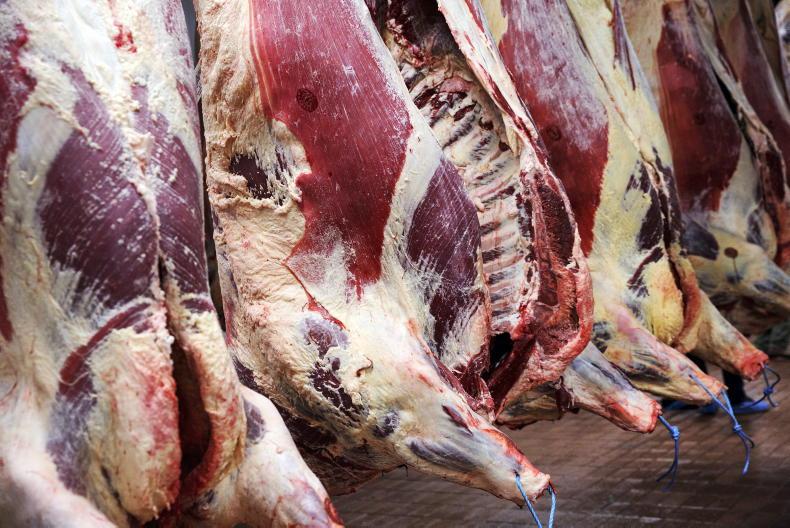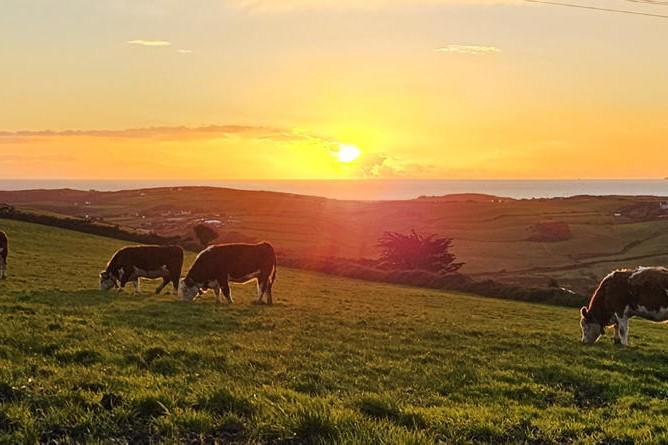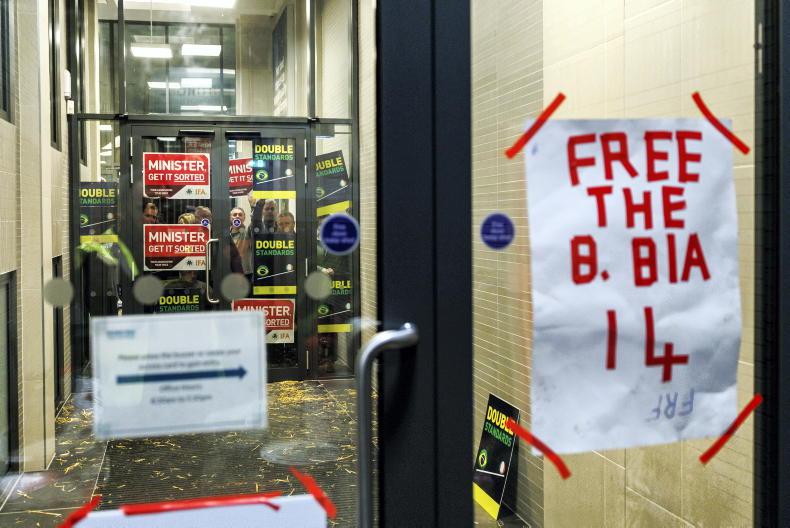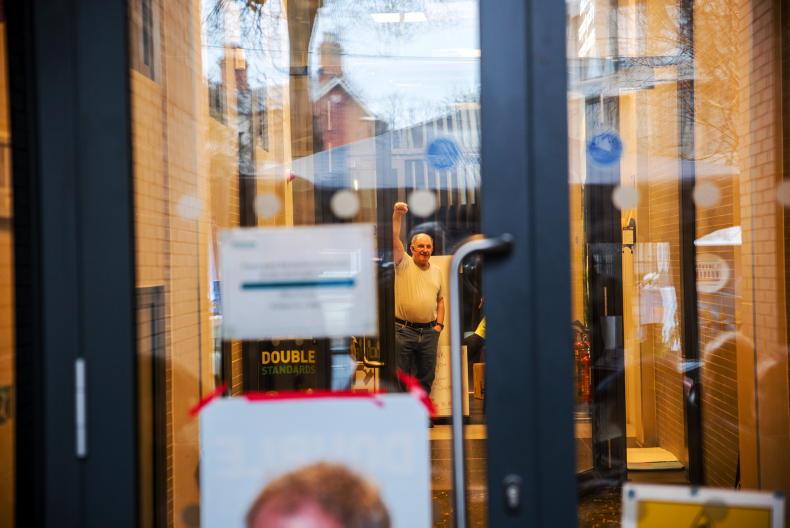It was exactly a year ago yesterday that then Minister for Agriculture Charlie McConalogue and Andrew Muir who holds the same brief in the Stormont Executive, met in Donegal to launch Irish grass-fed beef.
The occasion was symbolically powerful as the respective ministers representing both jurisdictions on the island of Ireland were combining to launch an island of Ireland brand for grass fed beef.
The feel good symbolism of the occasion was completed by the respective Minsters enthusiastically assisting with the preparation of a BBQ for the guests to enjoy on a cold afternoon at the start of March.
Good start, slow development
After the launch it was down to business and Italian supermarket group Esselunga were announced as the first major retail customer that would carry branded Irish grass fed beef in their stores.
Italy was targeted by Bord Bia as it is a country that is particularly familiar with what PGI brands mean, is a significant beef importer and places a considerably higher value on food and meal preparation compared with many other countries.
Since then it has gone quiet for the Irish grass fed beef brand. For any brand at a national level, buy in form across the supply chain is necessary.
The Esselunga venture in Italy with ABP as the supplier supported by Bord Bia led promotion is an example of how it can work. Potential in the UK, the destination for half our beef exports doesn’t exist in the retail sector as even UK PGI beef brands have negligible if any impact.
Food service is more likely to be supplied by cheaper imported beef and again less amenable to high value branding except in exceptional circumstances.

PGI is one of the EU designations that recognise regional food and drinks or products with special characteristics. Irish grass fed beef can now carry this.
Strong mainstream beef market
The other major impediment to enthusiasm for a beef brand in recent times is the good news of higher overall beef prices. The greatest enthusiasm for initiatives that could add value to beef can be traced to when beef prices were poor.
With bad prices, there is widespread concentration on what could be done to get more value into the carcase and return more euros per kilo at the farm gate.
In recent months, more euro per kilo have been returned at the farm gate without anything more than the supply and demand equation favouring farmers. This is of course to be welcomed and it has been long overdue but it does take the urgency out making the grass fed beef PGI work.
Comment – potential remains
While it may be disappointing that the PGI beef brand hasn’t made a greater impact by the end of its first year, it doesn’t mean that all has been lost or that it was a waste of time.
It took a long time to put it in place such is the cumbersome approval process but the fact that it has means that it will be there for future use.
All of the production standard fundamentals remain in place and should the need or indeed opportunity arise, then a campaign can be quickly be put in place. It may not require urgent attention at present given the strength of beef markets but opportunities should still be sought out, particularly for processors that don’t have direct supply contracts with major UK retailers or burger chains.
A slow build of a PGI brand in a low key way also has its merits and while PGI grassfed beef isn’t surrounded by as much hype at its first birthday as it was at its launch, it can still have an important place in the future of Irish beef promotion.
It was exactly a year ago yesterday that then Minister for Agriculture Charlie McConalogue and Andrew Muir who holds the same brief in the Stormont Executive, met in Donegal to launch Irish grass-fed beef.
The occasion was symbolically powerful as the respective ministers representing both jurisdictions on the island of Ireland were combining to launch an island of Ireland brand for grass fed beef.
The feel good symbolism of the occasion was completed by the respective Minsters enthusiastically assisting with the preparation of a BBQ for the guests to enjoy on a cold afternoon at the start of March.
Good start, slow development
After the launch it was down to business and Italian supermarket group Esselunga were announced as the first major retail customer that would carry branded Irish grass fed beef in their stores.
Italy was targeted by Bord Bia as it is a country that is particularly familiar with what PGI brands mean, is a significant beef importer and places a considerably higher value on food and meal preparation compared with many other countries.
Since then it has gone quiet for the Irish grass fed beef brand. For any brand at a national level, buy in form across the supply chain is necessary.
The Esselunga venture in Italy with ABP as the supplier supported by Bord Bia led promotion is an example of how it can work. Potential in the UK, the destination for half our beef exports doesn’t exist in the retail sector as even UK PGI beef brands have negligible if any impact.
Food service is more likely to be supplied by cheaper imported beef and again less amenable to high value branding except in exceptional circumstances.

PGI is one of the EU designations that recognise regional food and drinks or products with special characteristics. Irish grass fed beef can now carry this.
Strong mainstream beef market
The other major impediment to enthusiasm for a beef brand in recent times is the good news of higher overall beef prices. The greatest enthusiasm for initiatives that could add value to beef can be traced to when beef prices were poor.
With bad prices, there is widespread concentration on what could be done to get more value into the carcase and return more euros per kilo at the farm gate.
In recent months, more euro per kilo have been returned at the farm gate without anything more than the supply and demand equation favouring farmers. This is of course to be welcomed and it has been long overdue but it does take the urgency out making the grass fed beef PGI work.
Comment – potential remains
While it may be disappointing that the PGI beef brand hasn’t made a greater impact by the end of its first year, it doesn’t mean that all has been lost or that it was a waste of time.
It took a long time to put it in place such is the cumbersome approval process but the fact that it has means that it will be there for future use.
All of the production standard fundamentals remain in place and should the need or indeed opportunity arise, then a campaign can be quickly be put in place. It may not require urgent attention at present given the strength of beef markets but opportunities should still be sought out, particularly for processors that don’t have direct supply contracts with major UK retailers or burger chains.
A slow build of a PGI brand in a low key way also has its merits and while PGI grassfed beef isn’t surrounded by as much hype at its first birthday as it was at its launch, it can still have an important place in the future of Irish beef promotion.











SHARING OPTIONS